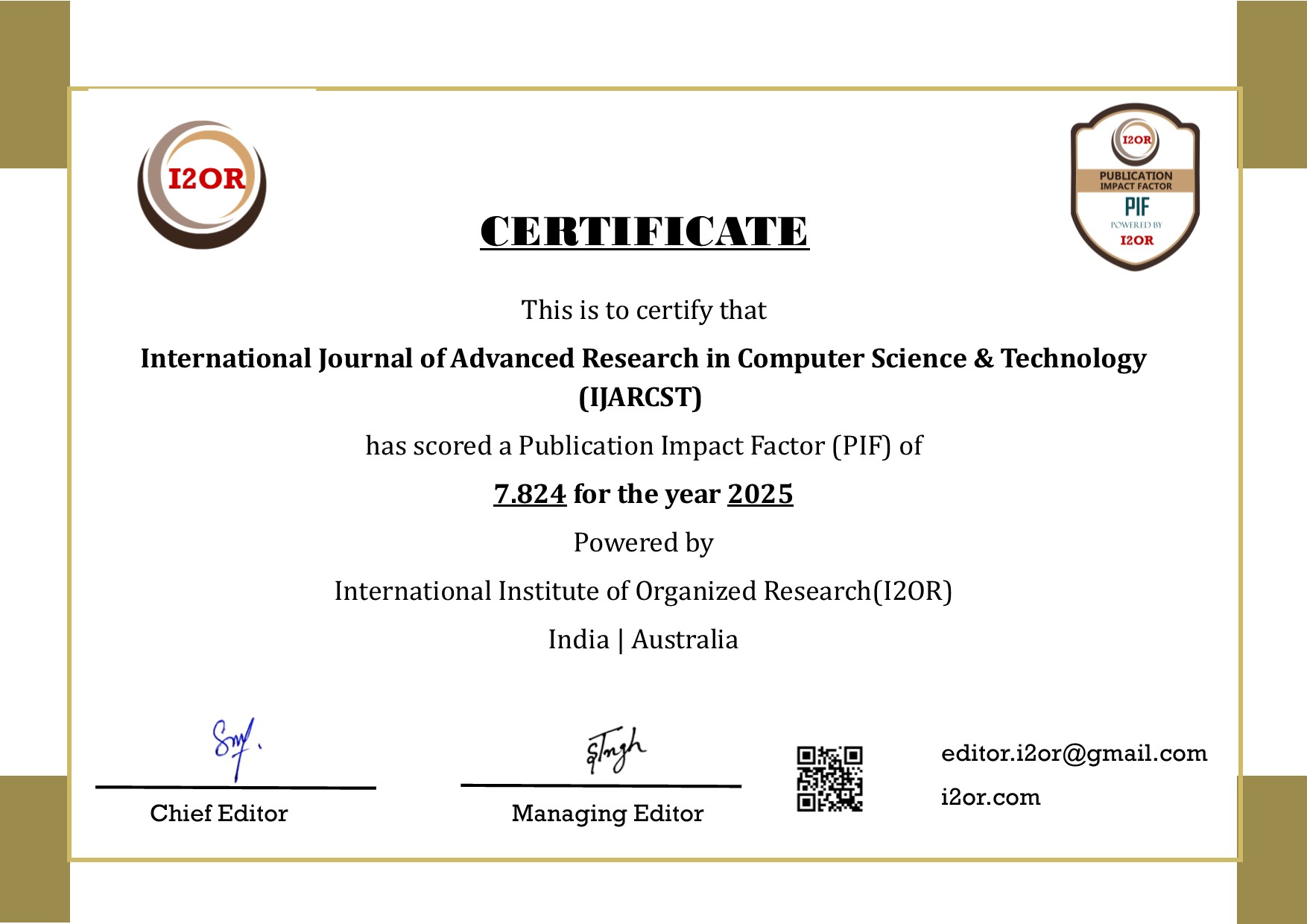Ethical AI: Balancing Transparency, Fairness, and Accountability in Intelligent Systems
DOI:
https://doi.org/10.15662/IJARCST.2023.0603002Keywords:
Ethical AI, Transparency, Fairness, Accountability, Explainable AI (XAI), AI Governance, Model CardsAbstract
As artificial intelligence (AI) increasingly influences decisions in critical domains—healthcare, finance, criminal justice, and employment—ensuring these systems are ethical has emerged as a paramount concern. Ethical AI requires a harmonious balance among transparency, fairness, and accountability, but these values often conflict in practice. This paper examines challenges in achieving ethical AI, synthesizing literature prior to 2022, and evaluating how transparency mechanisms (e.g., explainable methods), fairness-enhancing techniques, and accountability frameworks interact and sometimes trade off. We propose a methodology combining comparative evaluation of explainable models (interpretable models and post hoc explanations), fairness-aware algorithms (pre-, in-, postprocessing techniques), and accountability mechanisms (auditing, documentation standards). Using benchmark datasets, we assess how increased transparency affects model performance and privacy, how fairness interventions impact interpretability, and how accountability tools can help trace decisions without compromising usability. Key findings show that while transparency aids user trust and error detection, it may expose sensitive model internals or be misleading when explanations are oversimplified. Fairness interventions often complicate interpretability or reduce model accuracy. Accountability mechanisms, such as audit logs or model cards, bolster oversight but add documentation burdens. We present a structured workflow that integrates ethical considerations across the ML lifecycle—from data collection and design, through development and deployment, to monitoring and governance. Finally, we discuss advantages and disadvantages of ethical AI components, argue that thoughtful integration of transparency, fairness, and accountability can produce systems that are both effective and ethically aligned, and outline future work including standardized metrics, human-centered explanation design, accountability policy frameworks, and adaptive governance strategies.
References
1. Ribeiro, M. T., Singh, S., & Guestrin, C. (2016). "Why should I trust you?": Explaining the predictions of any classifier. Proceedings of the 22nd ACM SIGKDD International Conference on Knowledge Discovery and Data Mining.
2. Lundberg, S. M., & Lee, S.-I. (2017). A unified approach to interpreting model predictions. Advances in Neural Information Processing Systems (NeurIPS).
3. Mitchell, M., Wu, S., Zaldivar, A., et al. (2019). Model cards for model reporting. Proceedings of the Conference on Fairness, Accountability, and Transparency (FAT*).
4. Gebru, T., Morgenstern, J., Vecchione, B., et al. (2018). Datasheets for datasets. arXiv preprint arXiv:1803.09010.
5. Hardt, M., Price, E., & Srebro, N. (2016). Equality of opportunity in supervised learning. Advances in Neural Information Processing Systems (NeurIPS).
6. Feldman, M., Friedler, S. A., Moeller, J., Scheidegger, C., & Venkatasubramanian, S. (2015). Certifying and removing disparate impact. Proceedings of the 21st ACM SIGKDD International Conference on Knowledge Discovery and Data Mining.
7. Kamiran, F., & Calders, T. (2012). Data preprocessing techniques for classification without discrimination. Knowledge and Information Systems.
8. Zemel, R., Wu, Y., Swersky, K., Pitassi, T., & Dwork, C. (2013). Learning Fair Representations. Proceedings of the 30th International Conference on Machine Learning (ICML).
9. Zhang, B. H., Lemoine, B., & Mitchell, M. (2018). Mitigating unwanted biases with adversarial learning. Proceedings of the 2018 AAAI/ACM Conference on AI, Ethics, and Society (AIES).
10. Kleinberg, J., Mullainathan, S., & Raghavan, M. (2016). Inherent trade-offs in the fair determination of risk scores. Proceedings of Innovations in Theoretical Computer Science (ITCS).
11. Selbst, A. D., & Barocas, S. (2018). The intuitive appeal of explainable machines. Fordham Law Review Online, 87, 108.
12. Mittelstadt, B. D., Allo, P., Taddeo, M., Wachter, S., & Floridi, L. (2019). The ethics of algorithms: Mapping the debate. Big Data & Society.





